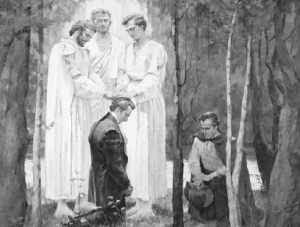This post is some of my thoughts on a comment made by LDS Philosopher. In it I hope to illustrate why Karl Popper was correct that battling over the meaning of a word has political ramifications, but never rational ones. My desire is to put this issue to bed (at least for myself) so that I can just put a link to this post when this issue comes up again. As such, the post is not actually about ‘taxes as theft’ per se, though I’m sure many will desire to respond to it as such. (And that is okay.)
Here is the comment in question:
Taxes are only objectively unlike theft in certain ways if you define theft as “forcible seizure of property, in which the victim has no token of a say in what happens with it.” I define theft as “forcible seizure of property, regardless of what happens next.” So your argument only works if you define theft in your specifically narrow way, which conveniently precludes taxation.
This argument is, in style, a common sort of argument of which I wish to illustrate a hidden logical fallacy in it.
The idea being expressed is that because I (in LDSP’s view) defined the word ‘theft’ wrongly, my whole argument is wrong. But, in fact, this isn’t rationally the case. In fact, I will illustrate that — rationally speaking — it simply does not matter who ‘has the correct definition.’ Continue reading

